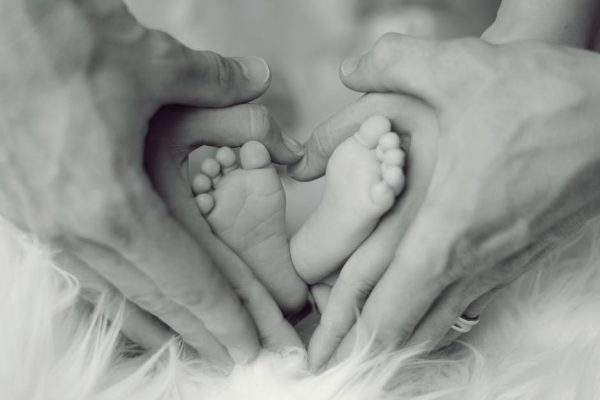America is split directly down the middle when it comes to the topic of abortion, according to a new poll.
The poll, released by the Public Religion Research Institute (PRRI), garnered national attention for the size of its survey, which was over 40,000 Americans.
The study found that 54% of Americans support legalized abortion “in all (23%) or most (31%) cases, while four in ten (40%) believe that abortion should be illegal in most (25%) or all (15%) cases.”
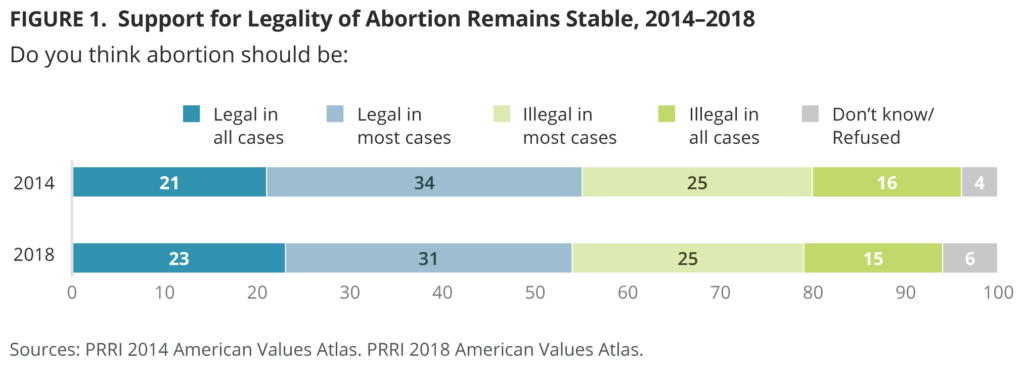
While the support for abortion stayed relatively the same from the last survey conducted, there were two findings within the study that are encouraging and helpful for the pro-life movement.
Two encouraging findings within the study
While the study revealed that Americans are divided on the topic of abortion, two questions within the study garnered encouraging responses for the pro-life movement.
First, a majority (77%) of Americans believe that birth control should be provided for low-income women through government insurance programs — but most (48%) don’t think those same programs should cover abortion procedures.
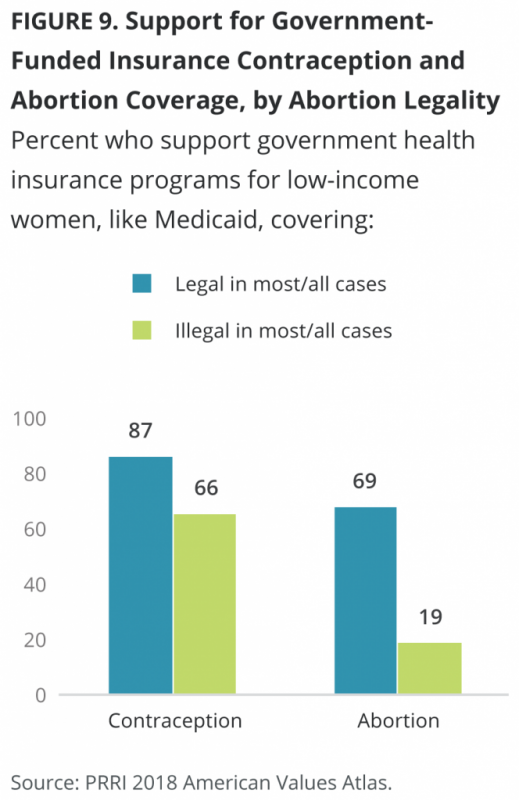
2018 PRRI American Values Atlas
This is significant because it underscores the fact that a majority of Americans do not support taxpayers funded abortion.
“Solid majorities of all major religious groups in the U.S. support government-backed health insurance programs covering contraceptives,” the survey said. “Those numbers decline among all religious groups on support for covering abortion, with the considerable variance between only 22% support from white evangelical Protestants and 80% support among Unitarian Universalists.”
Second, the poll revealed that 27 percent of pro-life voters will only vote for a candidate who aligns with their pro-life beliefs, while only 18 percent of pro-choice voters will only vote for someone that holds their abortion beliefs. This shows that while pro-lifers will be motivated to vote specifically on the issue of abortion, those on the pro-choice side are less likely to do so.
When comparing the study to the exact 2014 version, there is little to no difference in the polling numbers, but the differences noted in this study “are statically significant” and tell a bigger story, according to Natalie Jackson, the director of research for the Public Religion Research Institute.
The survey, which is segmented by religious beliefs, shows that, although white Catholics are in line with the rest of the nation when it comes to being split on abortion, Hispanic Catholics are a different story.
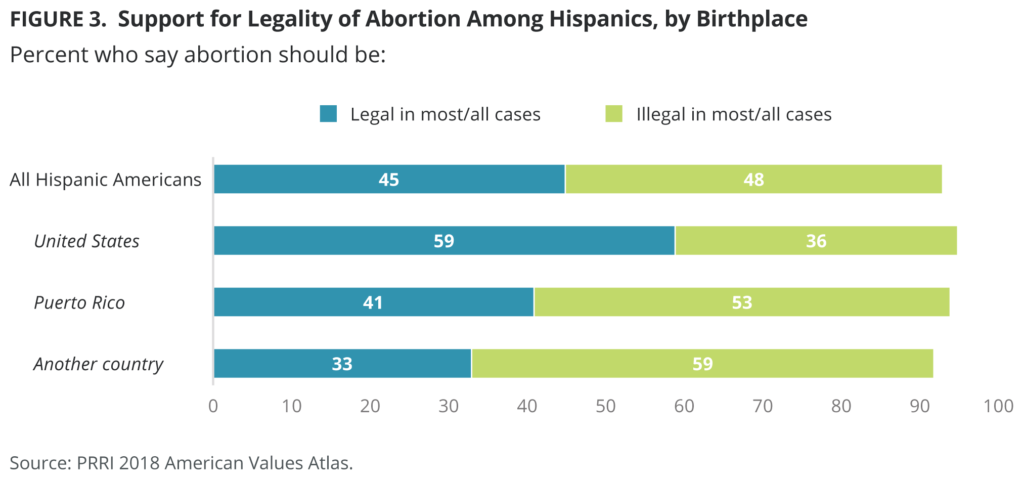
“When you look at Hispanic Catholics, you’re looking at a different picture,” Jackson shared with Catholic News Service. “We pull out the Hispanic and Latino population because they’re a distinct group. They’re divided heavily by religion and by place of birth. A healthy minority of Hispanics are evangelical, and the PRRI study looked at the attitudes of Hispanics born in the United States, Puerto Rico and Latin America separately.”
The study showed that while 55 percent of non-white Catholics support abortion, compared to 37 percent who don’t, 52 percent of Hispanics do not support abortion, while only 41 percent do support it.
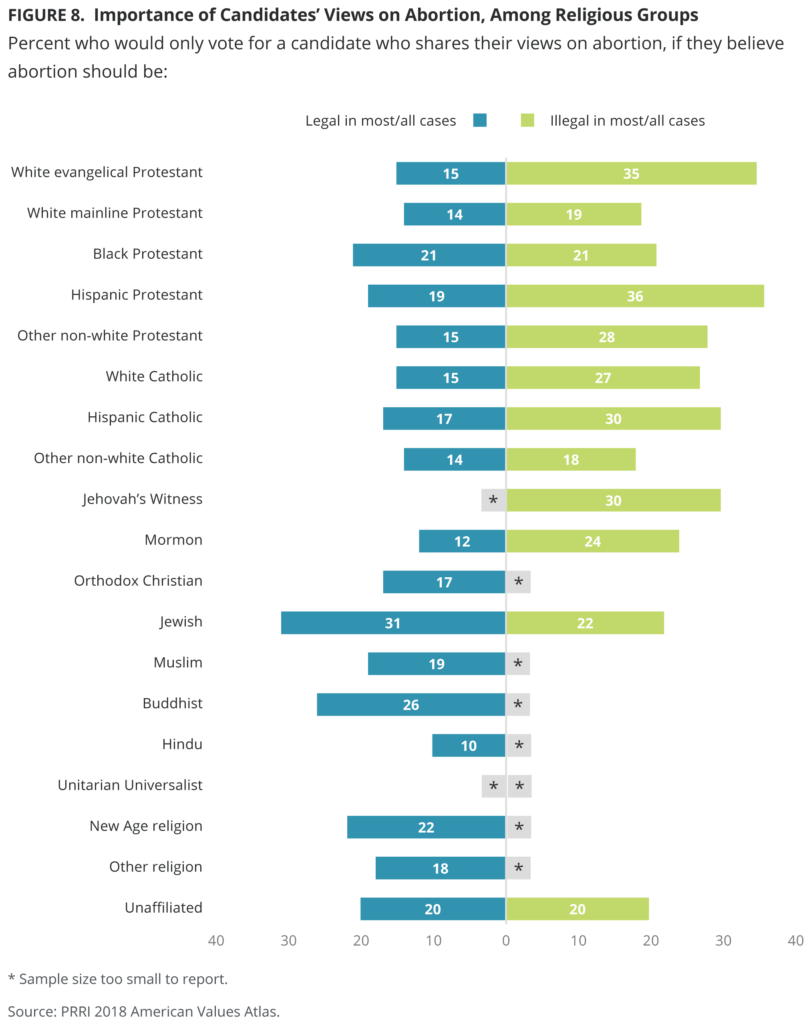
Out of all respondents surveyed, Hispanic Catholics were also most likely to say they became less supportive over abortion, as opposed to those who had become more supportive. 16 percent of Hispanic Catholics said they have become less supportive, while 11 percent said they have become more supportive.
Comparing this statistic to those of white Catholics, it seems to be a dramatic change. According to the survey, 9 percent of white Catholics said that they have become less supportive of abortion, while 8 percent said they are more supportive.
Although the changes in statistics are small, they could weigh positively for the pro-life movement. Abortion has been and will continue to be one of the most controversial issues in the upcoming election cycles.
Pray that the hearts of people in America are changed, and their eyes are opened to the gravity of abortion.
The survey polled 54,357 respondents between January 3, 2018, to December 30, 2018. 60 percent of the interviews took place via telephone, around 1,00 interviews took place a day, and the survey had a margin of error at 0.4 percentage points.












